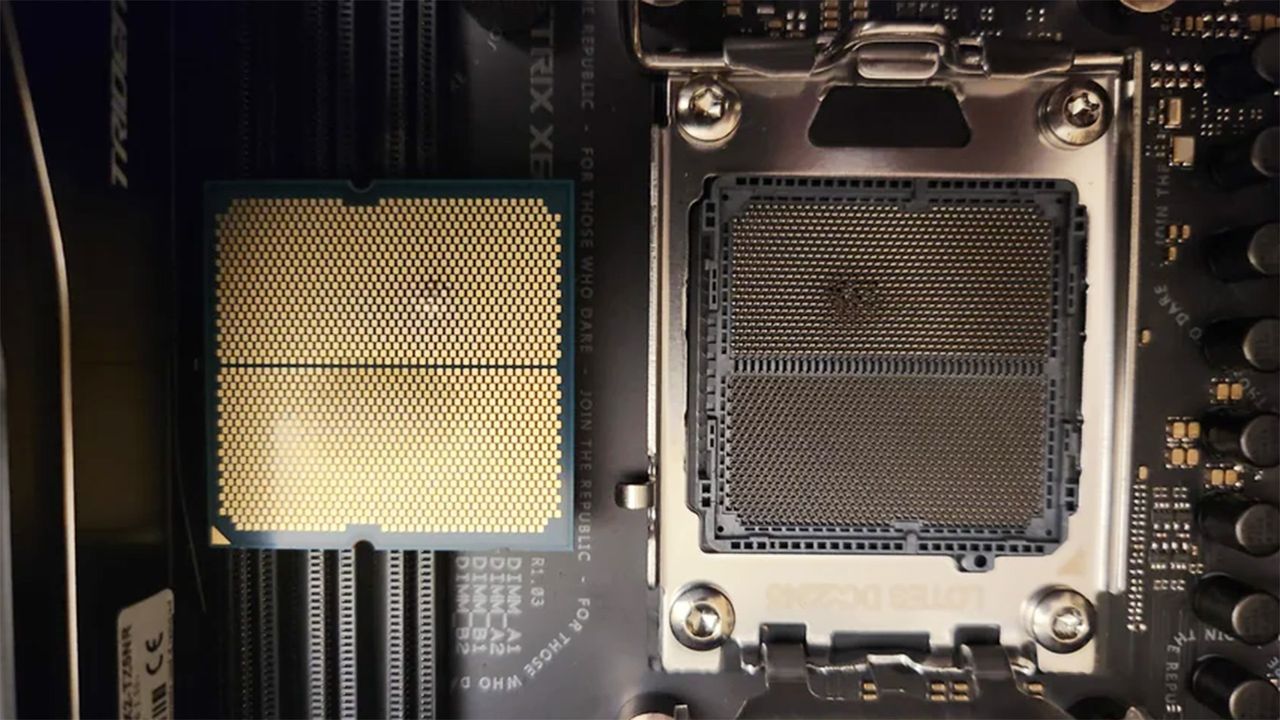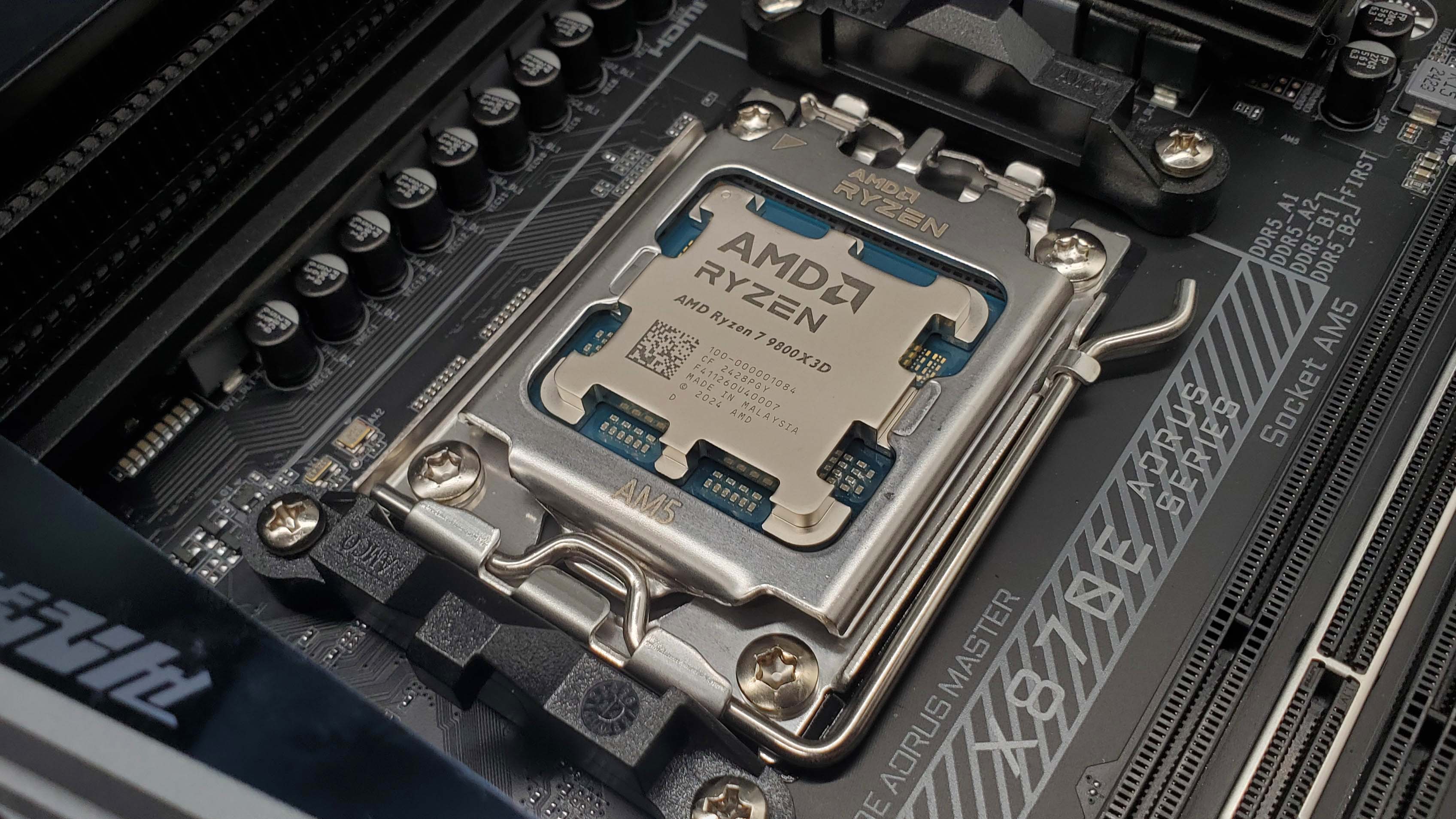
We've been reporting on toasted AMD AM5 CPU sockets for a while now. Back in April, a Reddit thread catalogued over 100 dead CPUs. AMD then told us, "Following a joint investigation, AMD and ASRock identified a memory compatibility issue present in earlier BIOS versions, which has been rectified in the latest BIOS."
However, in a new interview with Korean website Quasar Zone (via Tom's Hardware), AMD has somewhat changed its tune. AMD's David McAfee and Travis Kirsch said (they're quoted as one, so it's not clear who exactly said what, and also note this is a machine translation from Korean), "this issue arises because some ODM BIOSes do not adhere to AMD's recommended values."
In other words? Motherboard makers are pushing their luck with settings to squeeze out a touch more performance. AMD hasn't been specific, but obvious candidates include power limits and voltages.
AMD hasn't said if any specific measures are being taken to resolve or prevent any further toasted chips or boards, and simply recommends keeping your BIOS updated.
"We always recommend everyone update their motherboard BIOS to the latest version. This is because it incorporates additional features, performance improvements, and troubleshooting solutions," the pair are quoted as recommending.

That said, AMD did hint that the sheer complexity of modern PC platforms and particularly AMD systems, including support for overclocking and automated power delivery optimisation, is implicated. "One thing to add is that one of the downsides of the flexibility AMD offers is that competing platforms often limit the number of motherboard and CPU combinations available for a given platform.
"AMD, on the other hand, offers a wide range of combinations, and also supports PBO and overclocking. This means there are a vast number of possible scenarios. While this is a complex issue, we are working closely with our partners to resolve issues and further evolve the platform," AMD said.
For the record, the previously reported failures seemed to not be chipset specific, with roughly 45% of reports involving the X870 chipset, about one-third for the B850, and the B650 and X670 also implicated with a few kills of their own.
Since our April story, the internets have been relatively quiet on the subject, so it may well be that BIOS updates have largely mitigated the problem. In sum, if you're running a PC with an AM5 socket, keeping the BIOS right up to date does seem wise.







